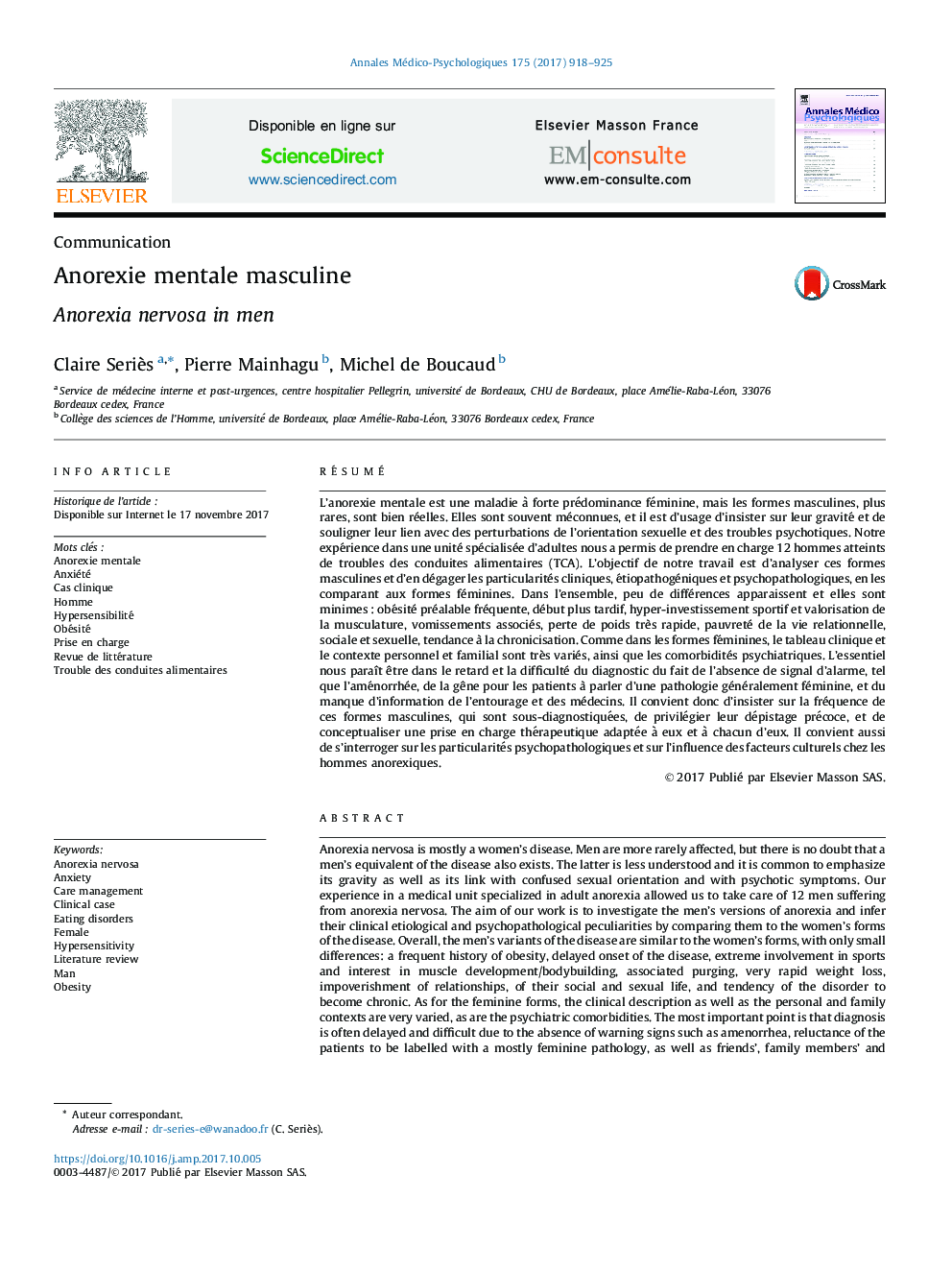| Article ID | Journal | Published Year | Pages | File Type |
|---|---|---|---|---|
| 6785503 | Annales Mdico-psychologiques, revue psychiatrique | 2017 | 8 Pages |
Abstract
Anorexia nervosa is mostly a women's disease. Men are more rarely affected, but there is no doubt that a men's equivalent of the disease also exists. The latter is less understood and it is common to emphasize its gravity as well as its link with confused sexual orientation and with psychotic symptoms. Our experience in a medical unit specialized in adult anorexia allowed us to take care of 12 men suffering from anorexia nervosa. The aim of our work is to investigate the men's versions of anorexia and infer their clinical etiological and psychopathological peculiarities by comparing them to the women's forms of the disease. Overall, the men's variants of the disease are similar to the women's forms, with only small differences: a frequent history of obesity, delayed onset of the disease, extreme involvement in sports and interest in muscle development/bodybuilding, associated purging, very rapid weight loss, impoverishment of relationships, of their social and sexual life, and tendency of the disorder to become chronic. As for the feminine forms, the clinical description as well as the personal and family contexts are very varied, as are the psychiatric comorbidities. The most important point is that diagnosis is often delayed and difficult due to the absence of warning signs such as amenorrhea, reluctance of the patients to be labelled with a mostly feminine pathology, as well as friends', family members' and doctors' lack of understanding of the disease. It is therefore important to emphasize that the men's variants of the disease frequently occur and are commonly under-diagnosed and to encourage earlier detection and conceptualize adapted treatment catered to each individual. It will also be important to further investigate the psychopathological peculiarities and the influences of cultural factors in men's anorexia.
Keywords
Related Topics
Health Sciences
Medicine and Dentistry
Psychiatry and Mental Health
Authors
Claire Seriès, Pierre Mainhagu, Michel de Boucaud,
